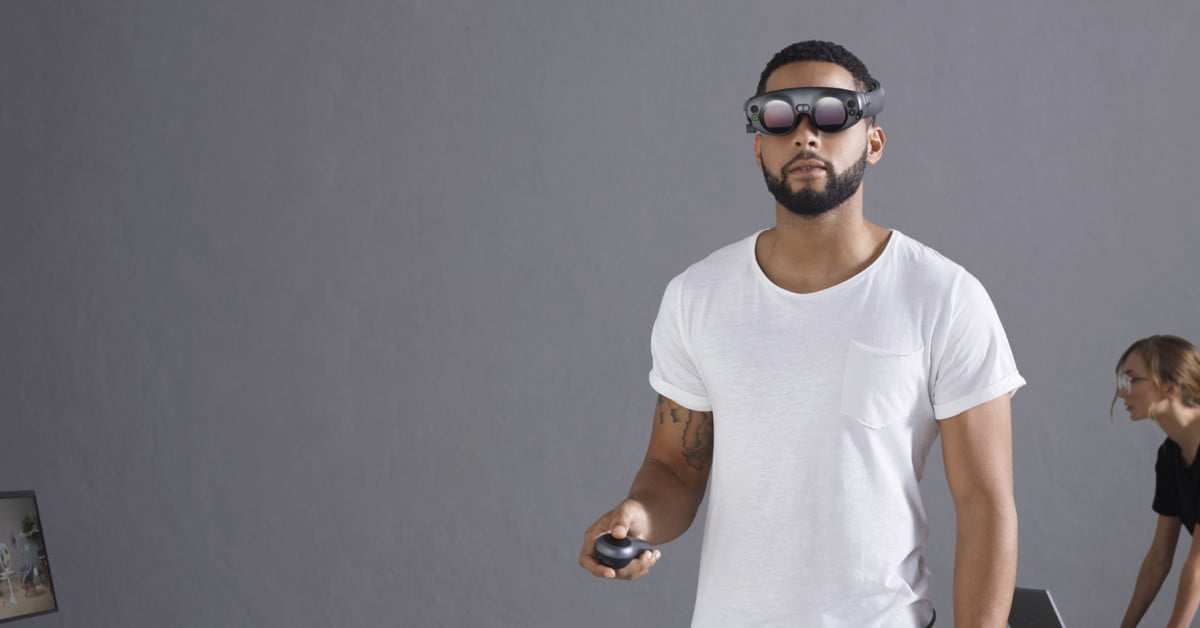Magic Leap this week held its first-ever developer conference called LEAPCon, where the company made a wide range of interesting and promising development and product announcements. But the company, its executives, and its partners also did something unique during the opening keynote: They asked developers not to merely rush into the creation of new content for the platform they call spatial computing, but to stop and think about why they are creating it, and what they can do to make it more inclusive.
New Platform, New Possibilities
Over the years, I’ve been publicly skeptical of Magic Leap’s ability to deliver upon some of the outsized promises it seemed to make around its technology. When the company’s first developer hardware kit, the Magic Leap One, shipped in August, many saw it as proof it had radically overpromised what it could do. I was a bit more forgiving, seeing it as the first hardware step on a long journey. At LEAPCon, Magic Leap CEO Rony Abovitz and company did something equally important to shipping that first piece of hardware: They talked about the future they hope people will build with this new technology.
Abovitz kicked off the keynote by acknowledging something few CEOs would: a troubled world. “Today our world feels divided. It feels broken. Our new medium of spatial computing is fresh; it doesn’t carry the baggage and negative headlines that are dominating the news today,” he said. “As a creative collective, we can refuse to perpetuate the baggage that weighs down traditional mediums that came before like radio, television, and film. They are great, but there is all this baggage. Spatial computing can be a safe haven, and a creative space to include all who respect each other.”
Abovitz then ceded the stage to his Chief Marketing Officer, Brenda Freeman, and CEO of Funomena, Robin Hunicke. Freeman noted that at present, the “magic verse” is a blank slate that affords creatives the opportunity to do things differently. To create an ecosystem that’s “vibrant, future forward, and culturally relevant.”
Hunicke acknowledge that the world today often feels overwhelming and uncertain and that people don’t always feel empowered to make change. “We are here today to talk and think and dream about adding a new dimension to our reality,” she said. “The possibilities are infinite, and the landscape of this work is fresh and new. It is relatively unexplored. This means the power we have to shape the future is incredible.” She went on to ask a question that not enough people in technology ask themselves: “What does that power mean, and how are we going to use it?”
“When platforms like radio, television, and film were first developed, diversity and inclusion weren’t part of the Zeitgeist,” she said. “When the internet, game consoles, and cell phone technology were first invented we were not yet quite honest with ourselves about how our unconscious biases would shape these new forms of communication, perpetuating stereotypes that alienate people from one another and sometimes from themselves. It may have been harder then to predict what such unbalanced representation in our creative, financing, marketing, and promotion structures would do to the industries that sprung up around these powerful technologies. Or how this unbalanced representation would tax our society long term. But this is no longer the case. We have a precious opportunity to ask ourselves some very important and difficult questions about what we build, why we build it, and who we build it for.”
“We can and should hold ourselves accountable to a higher standard,” she said. “To discuss and debate not just what is possible for the technology, or who will be in the marketplace, but what is ethical, important, and universal about this new dimension of reality.”
Thinking Before We Leap
It’s easy to be cynical about aspirational comments like these, especially when it comes from a company that’s hasn’t always lived up to some of the ideals being discussed. And we don’t have to agree with all the backward-looking cause and effects discussed to acknowledge that the technology industry often build new tools, platforms, and mediums without fully contemplating the impact they may have on the world. Too often, we build it because we can.
I’ve been talking about the possibilities of augmented reality for a few years now, and I continue to think this technology will have a world-changing impact. I’m an optimist, and I think that change can be for good, but there is no doubt that when we bring together the real world and the digital world this way, there is risk involved. This week there was a heartbreaking story about bullying on Instagram. Now imagine that happening on a platform where digital and physical worlds are merged together. And these are just kids; imagine what’s possible in the broader world with truly bad actors at work.
But that doesn’t mean we shouldn’t create these technologies. It means we have to do so with open eyes. I find it heartening that Magic Leap devoted time at the beginning of its keynote to discuss these important topics. Will the company or the broader augmented reality industry always get it right? Probably not. But at least they’re thinking about these questions now, at the beginning, when there is still the opportunity to build it right the first time.

But wanna say that this really is quite helpful Thanks for taking your time to write this.
I really like reading through a post that can make men and women think. Also thank you for allowing me to comment!
Definitely, what a great blog and instructive posts, I definitely will bookmark your site.All the Best!